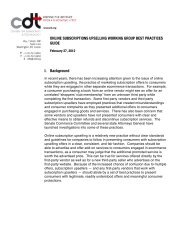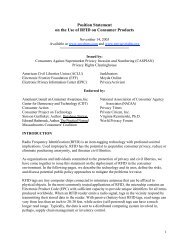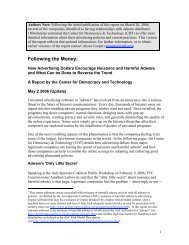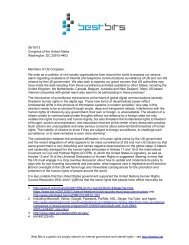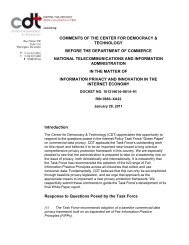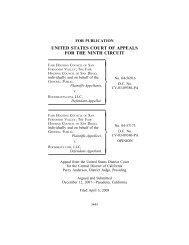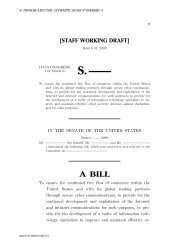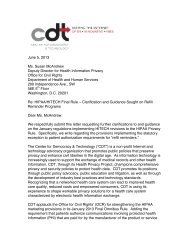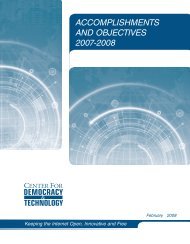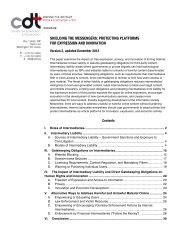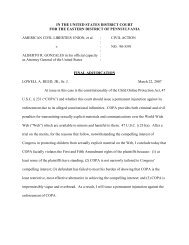20090212 Amicus Brief.pdf - Electronic Frontier Foundation
20090212 Amicus Brief.pdf - Electronic Frontier Foundation
20090212 Amicus Brief.pdf - Electronic Frontier Foundation
You also want an ePaper? Increase the reach of your titles
YUMPU automatically turns print PDFs into web optimized ePapers that Google loves.
alanced by an extensive array of statutory limitations and exceptions.<br />
See 17 U.S.C. §§ 106–123.<br />
The federal discovery system rests on very different premises—it does not<br />
convey to a litigant any “exclusive right” to an adversary’s property, nor does it<br />
provide statutory “limitations and exceptions” to offset such an expansive grant of<br />
rights. The notion that the drafters of the 2006 amendments to Rule 34 drew their<br />
conceptions of “electronically stored information” from the Copyright Act is, to<br />
say the least, unusual. In short, the definition of “fixation” under the Copyright Act<br />
sheds no light on the meaning of “stored” in Rule 34(a). 7<br />
E. Treating data in RAM as ESI is not workable.<br />
In an attempt to cabin the effect of its order, the district court noted that:<br />
this decision does not impose an additional burden on any website<br />
operator or party outside of this case. It simply requires that the<br />
defendants in this case, as part of this litigation, after the issuance of a<br />
court order, and following careful evaluation of the burden to these<br />
defendants of preserving and producing the specific information<br />
requested in light of its relevance and the lack of other available<br />
means to obtain it, begin preserving and subsequently produce a<br />
particular subset of the data in RAM under Defendants’ control.<br />
ER 51. The district court’s order, however, is based on the holding that data in<br />
RAM is ESI. See ER 48–51. That holding has far-reaching repercussions.<br />
7 Moreover, MAI Systems did not hold that data in RAM is always fixed for<br />
purposes of copyright law. See Cartoon Network LP, LLLP v. CSC Holdings, Inc.,<br />
536 F.3d 121, 127–30 (2d Cir. 2008) (discussing MAI Systems).<br />
14



